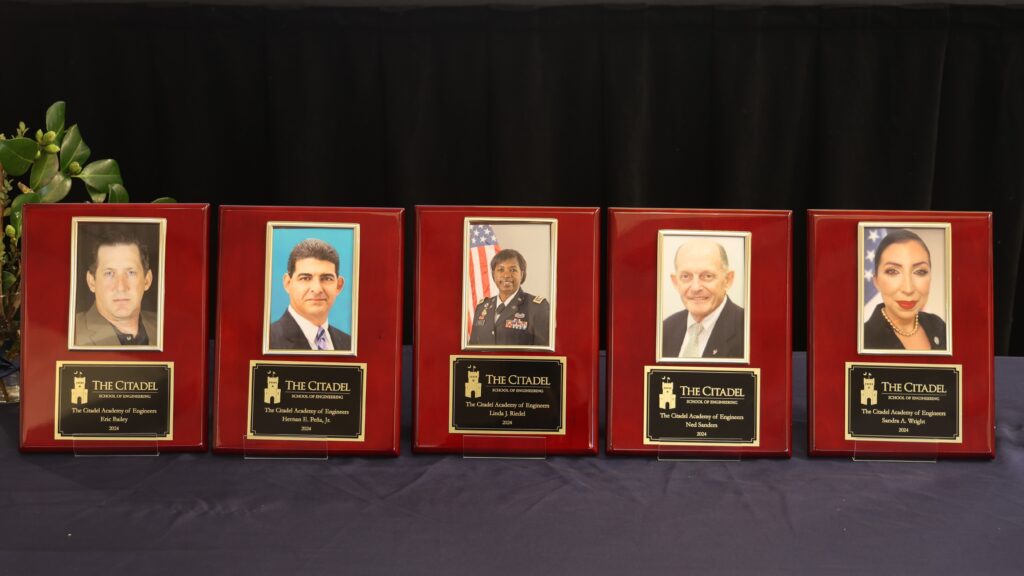
In its 12th year, The Citadel School of Engineering inducted five new members into the Academy of Engineers on April 11 — Dr. Eric M. Bailey, ’84; Mr. Hernan Peña Jr, ’84; Col. Linda J. Riedel, SCARNG, ’11; Col. Ned Sanders, USAF (Ret.), ’53; and Maj. Sandra Wright, MD ARNG, ’04.
The Citadel Academy of Engineers honors engineering leaders from both the public and private sectors who have enjoyed substantial success in their professional lives and made significant contributions to their communities. All of the inductees have lived a life consistent with The Citadel School of Engineering’s mission, which is to educate and develop principled engineering leaders to serve a global community. Additionally, each inductee embodies The Citadel’s core values of honor, duty and respect by building the reputation of engineering education excellence, modeling responsibility for student-centered success and giving mutual respect in The Citadel’s inclusion of all students.
“We are so pleased to induct this year’s class of The Citadel School of Engineering’s Academy of Engineers inductees, who embody what it means to be a principled leader and trailblazer in engineering, cybersecurity, the military, and public service. Their stories and experiences, which they have been able to pass down to our cadets and students, are truly inspiring,” said Andrew Williams, Ph.D., dean for The Citadel’s School of Engineering.
The 2024 Academy of Engineers inductees are:
Dr. Eric M. Bailey, ’84

Dr. Eric M. Bailey is a distinguished engineer with over 60 patents and more than 40 years of experience in Aerospace, Security and Medical Imaging. He was a 1984 graduate of The Citadel, captain in the U.S. Air Force and recipient of an honorary Ph.D. in Biomedical Engineering from Northeastern University. He served in the USAF on the development of the Peacekeeper intercontinental ballistic missile and conducted two underground nuclear tests. Later, he served with Northrop Grumman to develop guidance systems for missiles, vehicles and satellites. In the mid 90s, Bailey led a team of engineers to build the world’s first multi-slice, high speed, dual energy CT scanner for detection of explosives in checked airline luggage. This machine is the modern basis for all medical CT machines built since. The death of his brother due to brain injury in the remote mountains of New Hampshire, where the small hospital did not have a CT scanner, compelled him to found NeuroLogica Corp (now part of Samsung), to develop the world’s first portable head CT scanner.
He also invented the concept of Mobile Stroke Units, which could include such CT scanners, with the thought that someday they could be used in treatment of traumatic brain injury patients such as his brother. His many accolades include a personal exhibit in the Boston Museum of Science, Chairman of Lahey Hospital Quality & Safety, Citadel Alumni of the Year 2011, as well as teaching and lecturing regularly at Northeastern University and Harvard Medical School. Eric created a Joint Venture with Siemens Healthineers to design the next generation portable CT scanners. He presently serves as the Chief Commercial Officer of Sense Neuro Diagnostics Inc., a startup developing a low-cost, radio-frequency-based headset to detect stroke and traumatic brain injury in ICUs, ERs, ambulance, military, nursing homes and sports.
Mr. Hernan Peña Jr, ’84
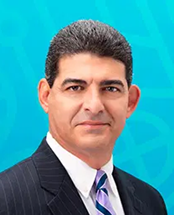
Hernan E. Peña Jr. serves as the Deputy Executive Director and COO at the Charleston International Airport (CHS). With a B.S. in Electrical Engineering from The Citadel and a Master of Engineering from California Coast University, Peña is a Certified International Airport Professional, Certified Airport Manager and an Airport Certified Employee in Airport Operations and Aviation Security. Peña’s leadership at CHS includes overseeing airport operations, engineering projects, and planning and he spearheaded the $250 million Airport Terminal Redevelopment Project, which included major aviation infrastructure upgrades. Before joining CHS, Peña worked alongside Mayor Joseph P. Riley Jr. on Charleston’s infrastructure, recovery from Hurricane Hugo and transportation projects as he served as Charleston’s Director of Transportation for 16 years, contributing to significant projects like the Arthur Ravenel Bridge, the James Island Connector Bridge, the Herbert Fielding Connector and the Septima Clark Roadway Project.
Peña has provided professional consulting services for over 31 years in the transportation sector globally, where he has undertaken over 70 projects worldwide, advising both domestic and international clients, including the U.S. Government, on project pre-feasibility studies and technical assistance. Peña’s expertise as a transportation consultant has been instrumental in shaping infrastructure projects across Asia, Africa, Europe and Latin America, reflecting his profound impact on global transportation systems. Throughout his distinguished career, Peña has garnered recognition for his contributions to the engineering profession, having received prestigious awards such as the Institute of Transportation Engineers (ITE) Past President’s Award, South Carolina’s ITE Transportation Engineer of the Year Award, The Institute of Electrical and Electronics Engineers Regional Professional Leadership Award and was the inaugural recipient of IEEE’s Wilbur B. Smith Outstanding Electrical Engineer Award in South Carolina.
Col. Linda J. Riedel, SCARNG, CGC ’11
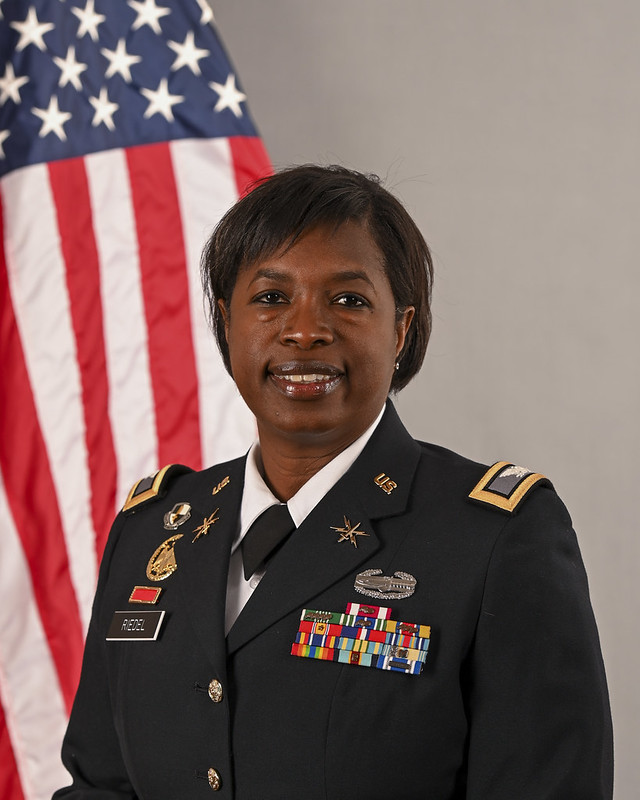
Col. Linda J. Riedel is the Brigade Commander for the 228th Theater Tactical Signal Brigade, South Carolina Army National Guard (SCARNG) located in Spartanburg, South Carolina. Riedel began her military career initially as an enlisted soldier and later received her commission through South Carolina’s Officer Candidate School, Palmetto Military Academy. She is a recent graduate of the Cyber War College at the National Defense University, College of Information and Cyberspace at Fort McNair, Washington, DC. Riedel is South Carolina’s first commander of the 125th Cyber Protection Battalion. Riedel formed a new cyber battalion, basically from scratch, and within six months prepared the battalion for deployment in support of Task Force Echo — comprised of more than 150 soldiers from various branches across the country to support the Cyber Mission Force — in March 2018-2019. Riedel continues to support the cyber initiatives of the Army National Guard and the cyber community.
A career Signal Officer with 30 years of service, Riedel was selected and awarded the AOC 17A Cyber Operations Officer designation in 2019. In 2023, Riedel was deployed to Kuwait in Support of Operation Spartan Shield and served as the Deputy G6 Forward for US Army Central responsible for overseeing, directing and coordinating the provision of a full range of information technology services in the Middle East. In March 2018, Riedel served as the Task Force Commander for Task Force Echo II. The Task Force was aligned under the 780th Military Intelligence Brigade, which falls under the operational control of the U.S. Army Cyber Command. In June 2012, Riedel served in support of Operation Joint Guardian in Kosovo (KFOR16). Her responsibilities included Civil Affairs Officer and S-1 for the Multinational Battle Group (East) KFOR 16. In February 2003, Riedel was ordered to active duty in support of Operation Iraqi Freedom. While deployed, her assignment included Signal Platoon Leader, 114th Signal Company.
Col. Ned Sanders, USAF (Ret.), ’53
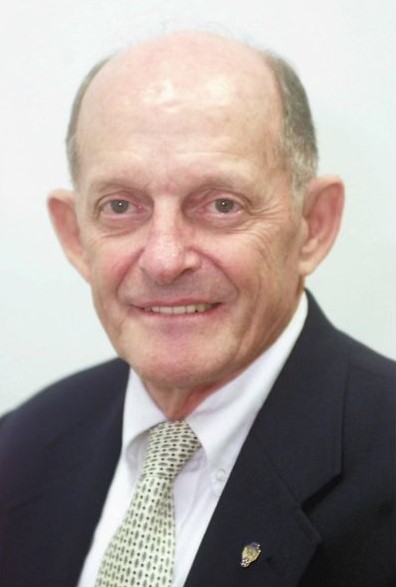
Col. Ned M. Sanders, PE, USAF (Ret.), ’53, as a Citadel cadet was active in the American Association of Civil Engineering student chapter, sports editor of The Sphinx and served as a company commander. He graduated as a Reserve Distinguished Military Graduate. Following The Citadel, Sanders had a military career involving training, teaching, education, flying and civil engineering. He flew various types of Air Force planes for 5,500 hours and taught Engineering Graphics and basic military skills at The Air Force Academy for three years. Soon after, he was assigned as the Civil Engineer at an aircraft warning radar site in Alaska. Sanders received a master’s degree in Structural Engineering at The University of Colorado. His thesis, Splice Length in Reinforced Concrete, was based on testing beams taken to structural failure. That research resulted in changing the applicable section in the American Concrete Institute code of construction. Sanders also received and passed his PE exam in Colorado. Sanders became Chief of Base Civil Engineering design, maintenance and construction at Scott Air Force Base for three years.
After Scott AFB, there was a period of three years for training and duty flying combat in South Vietnam. After, he entered graduate school at Clemson University and was a teaching assistant for concrete and asphaltic materials. He then became a Construction Engineer at Robins AFB. Sanders was promoted to be the Base Structural Engineer and was then made Chief of the Civil Design group. He was then promoted to be Chief of Civil Engineering design and construction where he worked on 100-120 projects per year, varying from $5,000-$20 million or more, and supervising over 45 professionals. Sanders was then promoted to be Chief of Civil Engineer Programs at the national level for the Air Force Reserve where he managed engineering and architectural projects for 13 Air Force Reserve bases.
Maj. Sandra Wright, MD ARNG, ’04

Maj. Sandra Wright is an Engineer and Military Police Officer, currently serving as the Operations Officer in the 115th Military Police Battalion in the Maryland Army National Guard. Her military career began in 1997, when enlisting into the Army, and she has worked as a light-wheel vehicle mechanic, Blackhawk Helicopter Mechanic, Engineer, and Military Police Officer in various positions throughout the Maryland Army National Guard. After graduating from The Citadel and beginning work as an electrical engineer, Wright decided to return to the Army and commissioned as an Engineer Officer in 2010, later serving as the Commander for the 244th Vertical Engineer Company. She deployed her unit to build schools in El Salvador and to Puerto Rico for construction efforts to rebuild portions of Camp Santiago. In 2016, Wright was selected as the Maryland Army National Guard Association’s Company Grade Officer of the Year and in 2019 as the Military Reserve Exchange Program Officer, earning an opportunity to serve in Estonia for the Spring Storm Exercise as the S-3 Operations Officer for a multi-national Engineer.
Wright served during the 2017 and 2021 Presidential Inaugurations, the 2021 Capitol Response Mission, three activations for military support to Maryland’s COVID response force and is preparing for the 2025 Presidential Inauguration. In 2021-2022, Wright was deployed with the 29th Infantry Division under Operation Spartan Shield, serving as the Division Engineer for the Kingdom of Saudi Arabia and working on construction projects to transition from the Army footprint on an Air Force Base from expeditionary living to semi-permanent structures. During this deployment, Wright directed more than 150 Army volunteers to the Air Force’s on-base noncombatant evacuation operations by managing daily requests for support to more than 1,200 Afghans with disembarking aircraft, in-processing, biometrics screening, visa paperwork review, COVID testing and lodging activities under Operations Allies during the 2022 retrograde operation from Afghanistan. In 2021 and 2023, Wright served as the lead instructor of Be Strong, which offered free self-defense training to around 600 women and girls in the Kuwait City community.

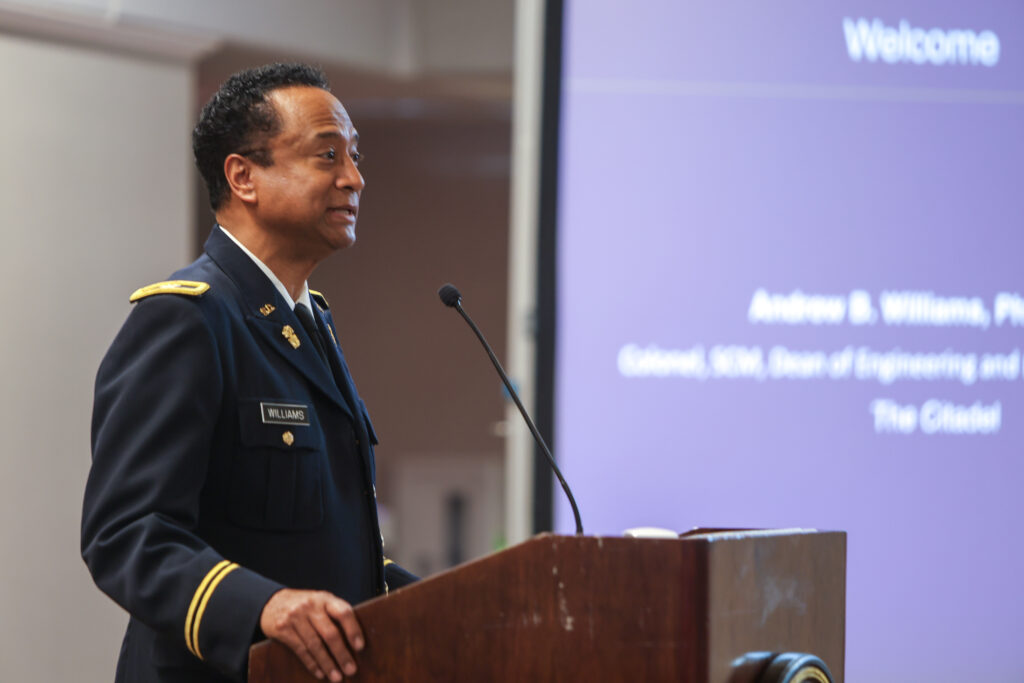
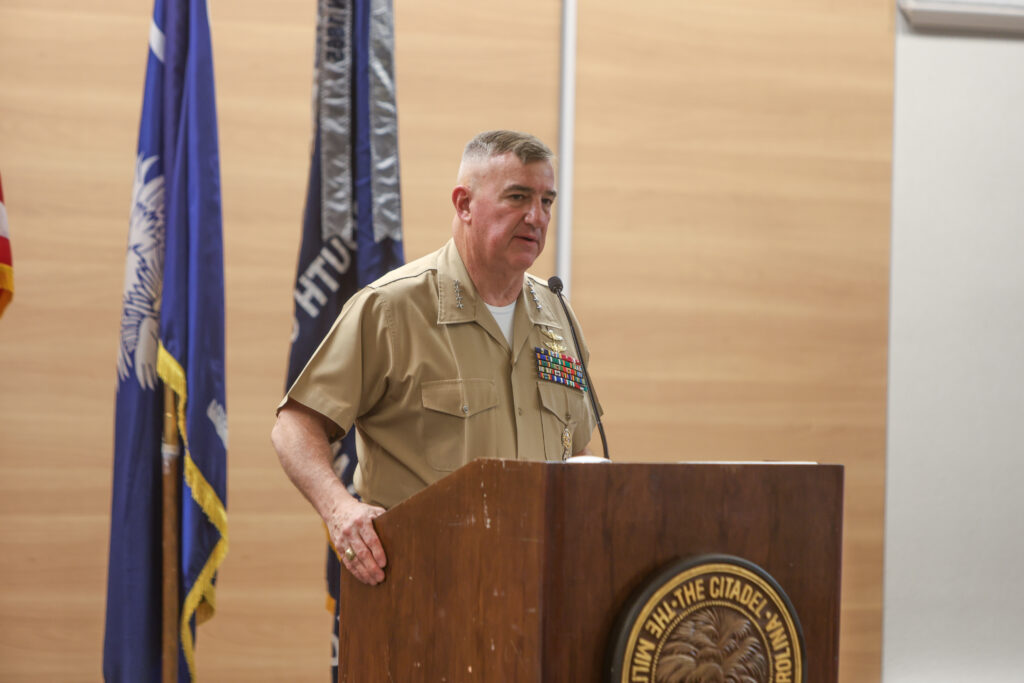
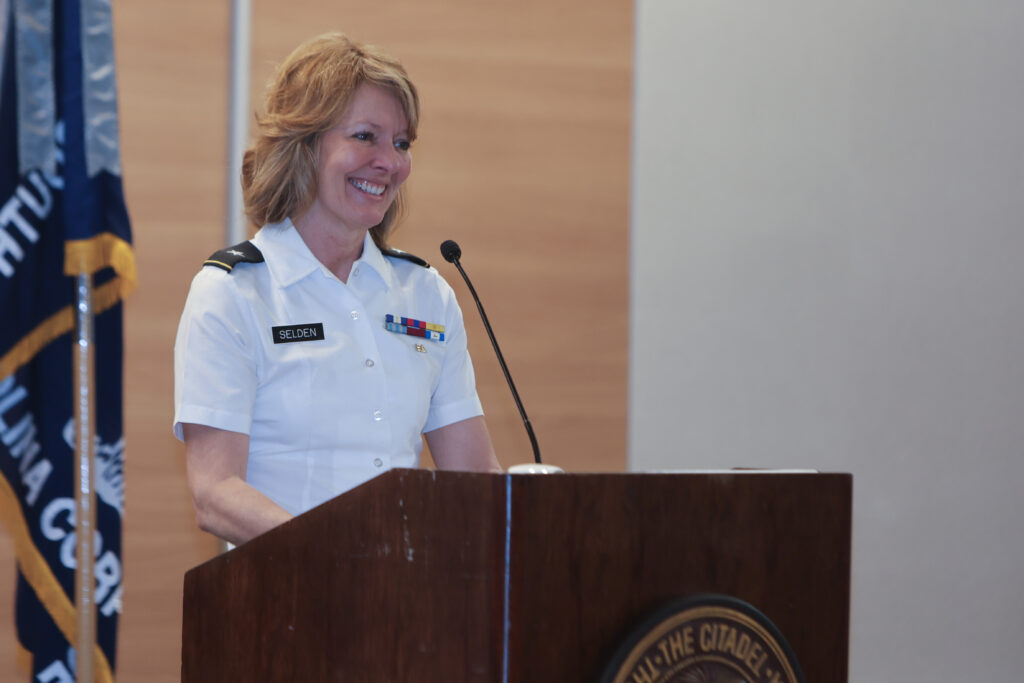
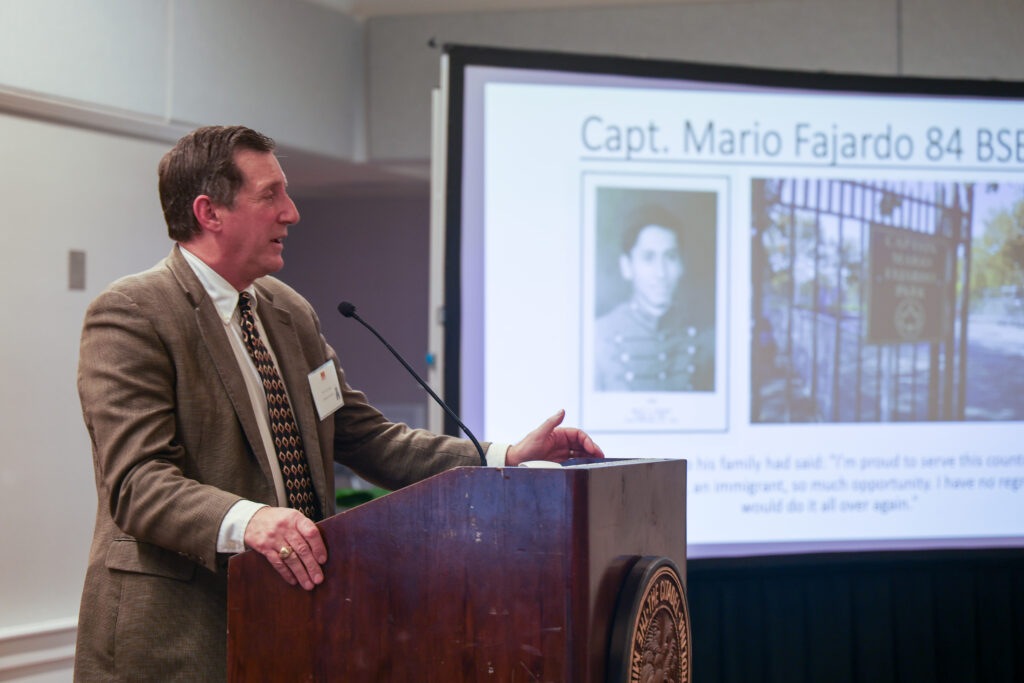
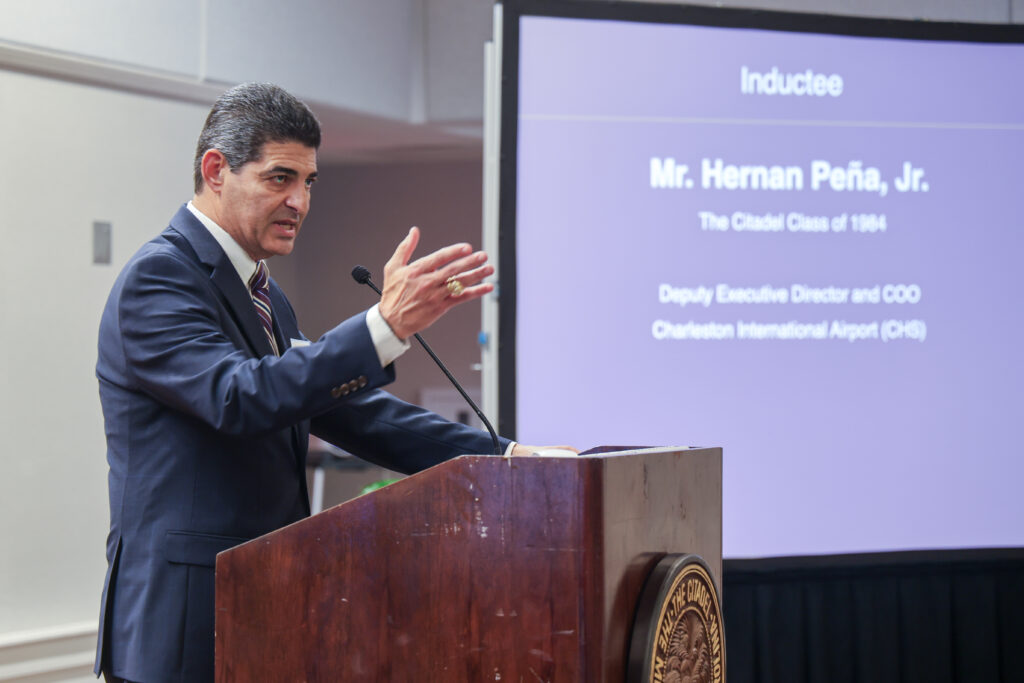
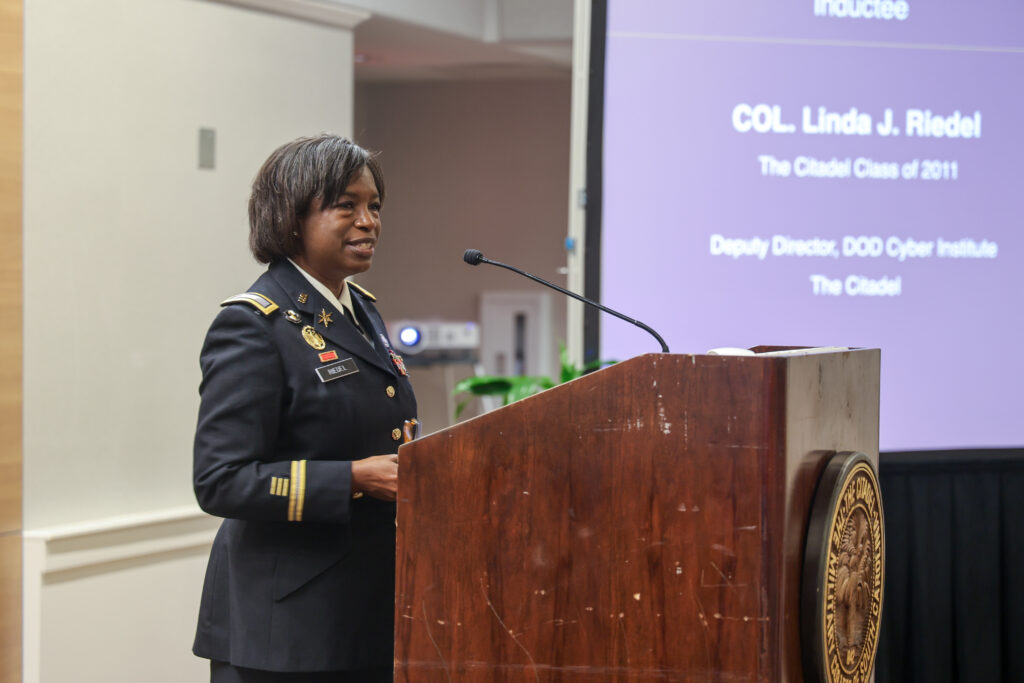
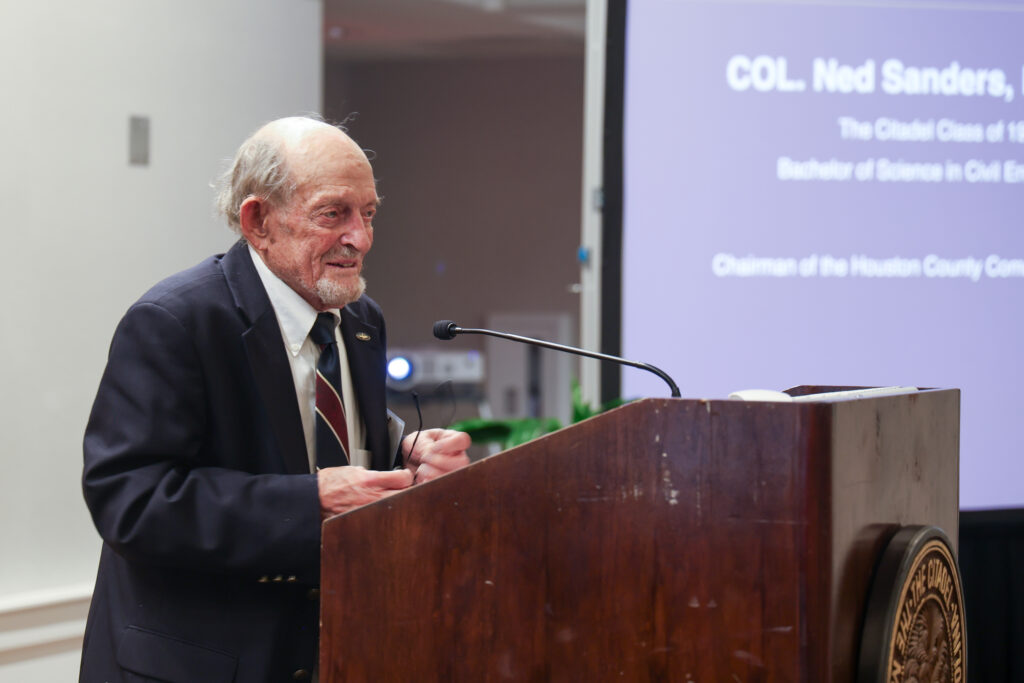
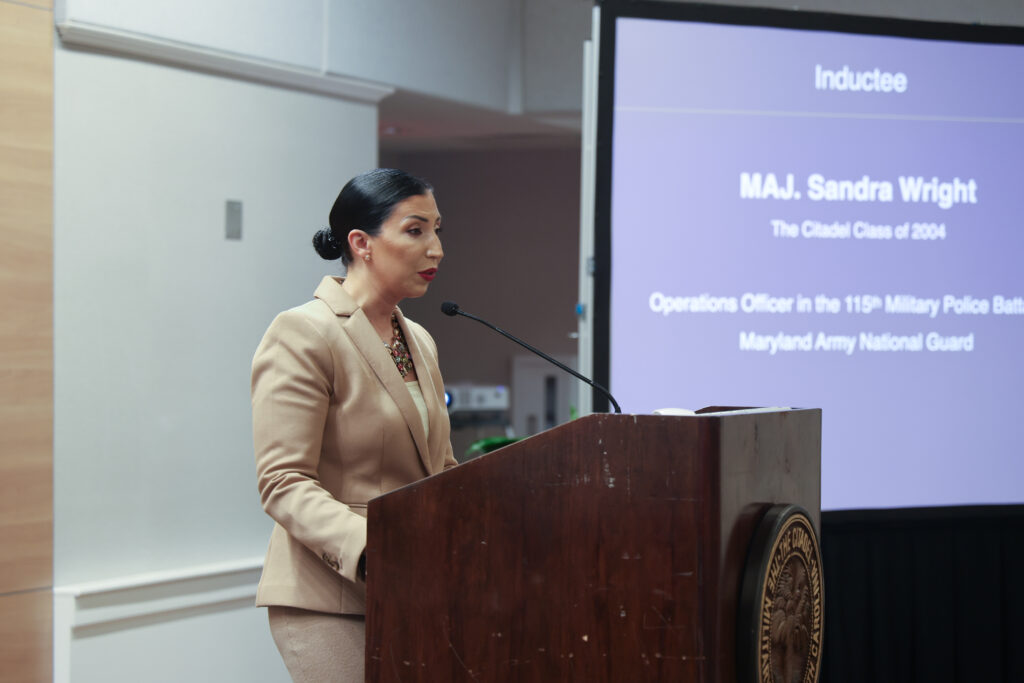
 Moore Art Gallery opens “All Hands on Deck” WWII naval photography exhibit
Moore Art Gallery opens “All Hands on Deck” WWII naval photography exhibit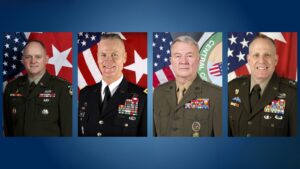 The Citadel’s presidential search committee announces four finalists
The Citadel’s presidential search committee announces four finalists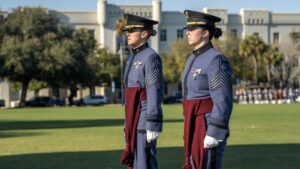 Prestigious Cincinnati and MacArthur awards presented to Citadel cadets
Prestigious Cincinnati and MacArthur awards presented to Citadel cadets


